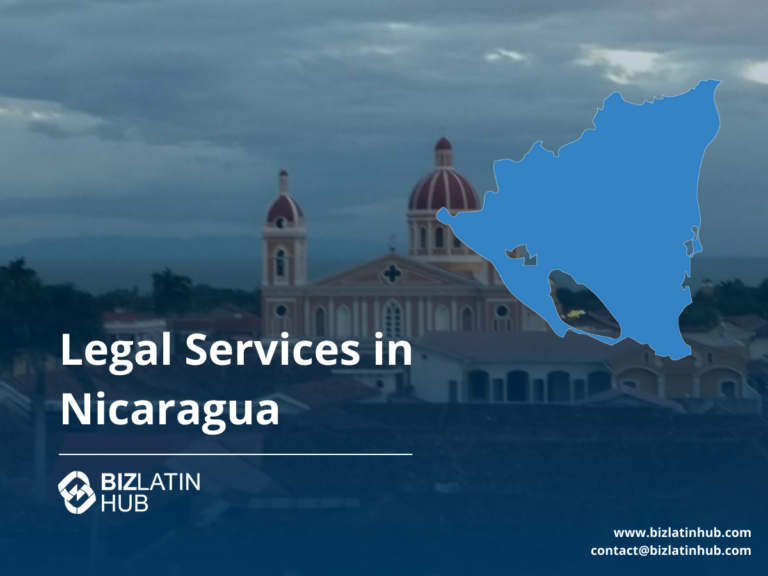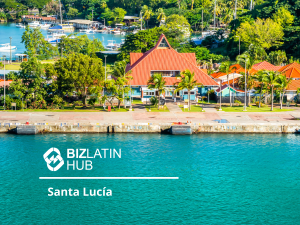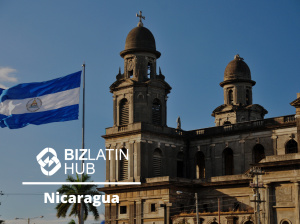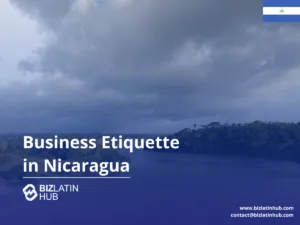Nicaragua is an attractive destination for global companies. Starting a business in Nicaragua is straightforward, and the tax system encourages ventures in tourism, energy, and innovation. Before launching a company in the country, it is essential to understand corporate compliance in Nicaragua. The rules and regulations around business compliance can vary greatly from country to country. Don’t let legal complexities stop companies from launching or expanding in this beautiful Central American country.
Key Takeaways On Corporate Legal Compliance in Nicaragua
| Is a physical address in Nicaragua necessary for doing business? | Companies in Nicaragua must maintain a registered office, which acts as their legal address. This office is essential for receiving official correspondence and legal documents. |
| What are the annual entity fiscal compliance requirements? | Compliance with local tax obligations is required. This includes paying corporate income tax and payroll taxes by specific deadlines. Keeping accurate financial records at the registered office is mandatory. If you operate in a Free Trade Zone, you may have to file separate documents there as well. |
| What are the annual Entity Legal Compliance Requirements? | An annual return detailing the company’s structure and status must be filed with authorities to ensure legal compliance. These returns, along with annual financial statements, are crucial. |
| What common statutory appointments do companies make in Nicaragua? | A Nicaraguan resident legal representative must be appointed. |
| Why Choose to Invest in Nicaragua? | Nicaragua boasts a favorable investment climate with competitive labor costs, tax incentives, and free trade agreements that provide access to key international markets. |
Corporate Legal Compliance in Nicaragua
Companies in Nicaragua must maintain a registered office, which acts as their legal address. This office is essential for receiving official correspondence and legal documents.
An annual return detailing the company’s structure and status must be filed with authorities to ensure legal compliance. These returns, along with annual financial statements, are crucial. Companies must prepare and submit these statements, which reflect financial performance and status, to regulatory bodies.
Fiscal Compliance Requirements for Businesses
Businesses in Nicaragua must adhere to several compliance requirements. The corporate tax rate is 30%, while the value-added tax (VAT) is 15%. Both local companies and branches of foreign companies, known as permanent establishments, face the same tax obligations.
Compliance with local tax obligations is required. This includes paying corporate income tax and payroll taxes by specific deadlines. Keeping accurate financial records at the registered office is mandatory. These records should show the company’s financial position and include consolidated financial statements of any subsidiaries.
Key Compliance Points:
- Corporate Tax Rate: 30%
- Value-Added Tax (VAT): 15%
- Incorporation Time for S.A.: 30 days
- Share Capital Requirement: None for S.A.
- Shareholder Rights: Equal unless stated
These requirements ensure businesses operate within the legal framework. Companies must maintain accounting books and submit tax returns to comply with Corporate Law.
What is the Legal System in Nicaragua?
The Judicial Branch in Nicaragua oversees all national trials and executes judicial sentences. Justices and judges operate independently, adhering to constitutional and legal mandates.
The Organic Law of the Judicial Branch, enacted in 1998, governs this power, establishing a two-tier system and granting the Supreme Court the authority to modify or revoke sentences. The legal system includes local judges, district judges, Courts of Appeals, and the Supreme Court of Justice.
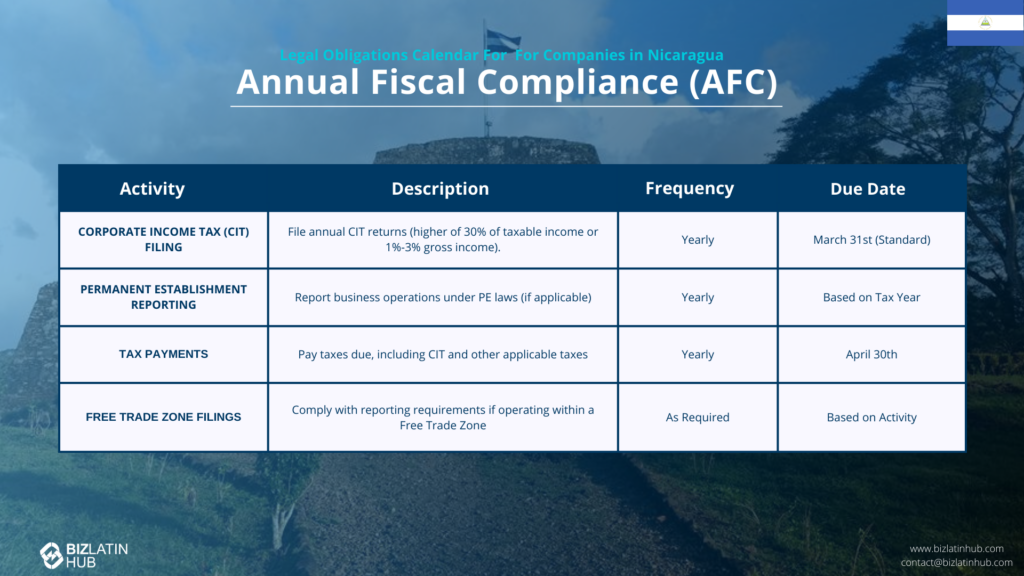
Corporate Compliance in Nicaragua – Registering a Company
To incorporate a company in Nicaragua, organizations must follow these steps:
Draft Act of Incorporation: Require two shareholders with a minimum startup capital of C$10,000. A Nicaraguan resident legal representative must be appointed. The final act needs certification by a Nicaraguan public notary.
Purchase Accounting and Corporate Books: Obtain necessary books for company registration from local bookstores.
Submit Act of Incorporation at VUI: Present documents at the Investment Service. Processing by the Commercial Registry requires a payment of 1% of the company’s capital, up to C$30,000.
Register as a Trader and Accounting Books: After processing, register as a trader and the accounting books at the Commercial Registry through VUI.
Secure Single Registration Document: This document, obtained concurrently with the previous step, provides Municipal License, INSS License, and Tax Payer Registration. It involves a payment of 1% of the company’s capital.
Appoint Legal Representation: Shareholders must appoint a Nicaraguan resident legal representative. The representative’s powers can be limited by the Board of Directors. Choosing a trustworthy individual is essential.
Corporate Compliance in Nicaragua – Liabilities
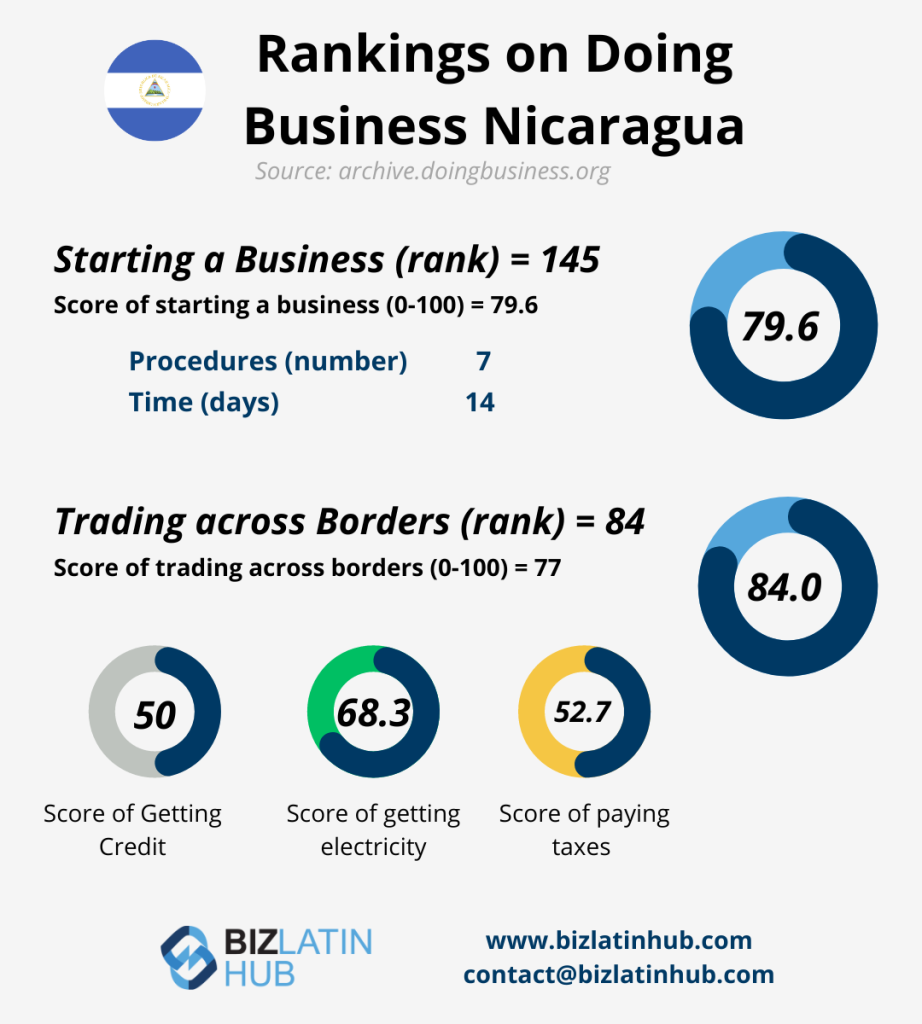
In Nicaragua, directors of corporations are generally not personally liable for the company’s obligations according to the Code of Commerce.
However, they can be held accountable if they fail to fulfill the company’s administrative duties, violate its bylaws, or breach the law, facing liabilities to both the corporation and third parties.
Criminal sanctions, including imprisonment, can be imposed if directors participate in self-serving decisions harmful to the company or the public.
Regarding parent company liability, specific regulations are lacking, but claimants can attempt legal action against parent companies in case of disputes.
Consumers can pursue claims against parent companies if the parent company is responsible for the production, distribution, or commercialization of goods in Nicaragua through a local distributor. The legal framework allows consumers to seek redress against suppliers in such instances.
FAQs for Corporate Compliance in Nicaragua
Based on our extensive experience these are the common questions and doubts of our clients.
Corporate Income Tax (CIT) is applied solely to income sourced within the country. The tax rate is determined by the higher of two options:
– 30% of net taxable income: This is calculated as gross taxable income minus allowed deductions.
– A definitive minimum tax: This ranges from 1% to 3% of the gross income earned during the fiscal year. The final income tax amount is the greater figure resulting from comparing the 30% tax on net taxable income with the minimum tax percentage applied to gross income.-
Law 822 in Nicaragua has introduced a clear understanding of ‘permanent establishment’ within the country’s income tax system. This term refers to a location where a non-resident taxpayer conducts business either entirely or partially. This encompasses various entities such as a place of management, branch, office, agent, factory, workshop, or sites for resource extraction like mines, oil wells, or quarries.
Additionally, it includes construction or installation projects lasting more than six months and consultancy services extending beyond six months within a year. This definition provides a comprehensive framework for taxation, ensuring clarity for businesses operating in Nicaragua.
Yes, the Nicaraguan government repealed Decree No. 46-91 and introduced Law 917/2015, known as the Export Free Trade Zone Law. This law establishes various types of export-free zones, including those for processing, industrial production, logistics, and outsourcing services.
In Nicaragua, the typical tax year runs from January 1 to December 31. Nonetheless, businesses can request approval from tax authorities to adopt different fiscal year-end dates: March 31, June 30, or September 30.
Why Choose to Incorporate a Company in Nicaragua?
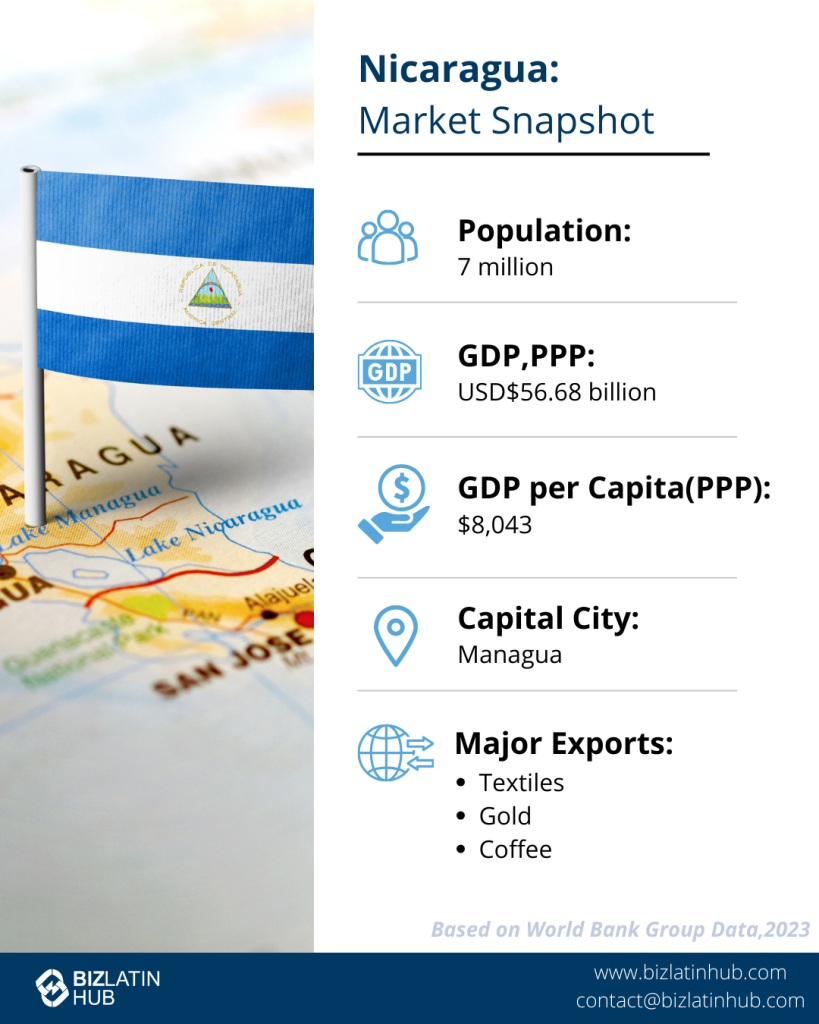
Incorporating a company in Nicaragua offers businesses access to a growing economy with a wealth of opportunities in agriculture, manufacturing, tourism, and renewable energy. Nicaragua boasts a favorable investment climate with competitive labor costs, tax incentives, and free trade agreements that provide access to key international markets.
Its strategic location in Central America serves as a gateway to both North and South America, making it an ideal base for regional operations. Additionally, the Nicaraguan government actively encourages foreign investment through its pro-business policies and streamlined incorporation processes.
The country’s infrastructure is steadily improving, with ongoing investments in transportation, energy, and telecommunications that support business development. Nicaragua also enjoys a youthful and skilled workforce, ensuring access to capable talent for businesses across various industries.
By choosing to incorporate a company in Nicaragua, investors can leverage these advantages to establish a strong foothold in a promising and expanding market. Whether you are a small business owner or a multinational enterprise, Nicaragua offers a dynamic environment for growth and profitability.
Biz Latin Hub Can Oversee Your Corporate Compliance in Nicaragua
At Biz Latin Hub, we offer a comprehensive range of market entry and back-office solutions in Latin America and the Caribbean.
We have expertise in corporate compliance in Nicaragua, with legal services, accounting and taxation, hiring, and visa processing available.
We retain a large presence in LATAM with strong partnerships throughout the region. This far-reaching network gives us lots of tools to help with international projects and entering new markets in different countries.
Contact us today to learn more about our services and how we can help you achieve your business goals in Latin America and the Caribbean.

